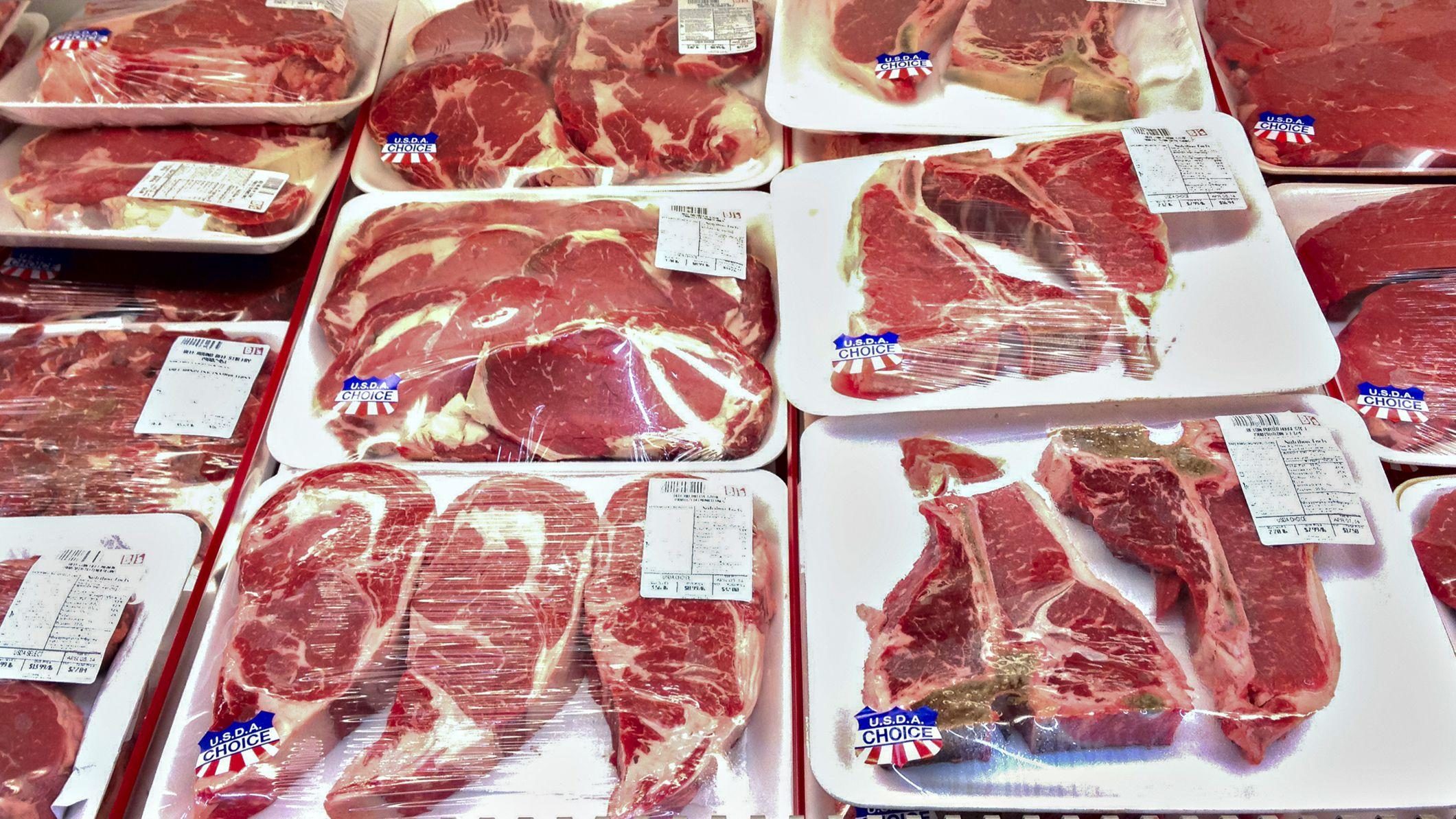On June 21, a consumer interest group issued concerns around one of the ingredients in Beyond Meat's production process. And earlier in June, the World Health Organization said that eating heme — a main ingredient in the Impossible Foods burger — is linked with the formation of carcinogens in the gut.
So far, both companies have weathered the criticism. But increased scrutiny of Beyond Meat and Impossible Foods' meat alternatives poses a big question for all companies offering substitutes to edible animal flesh. How do they truthfully and thoughtfully communicate what they are making — highly processed food — to consumers who are invested in their social missions, yet dubious of food that humans have tinkered with?
For their part, Beyond Meat has explained that the consumer group is wrong about its use of a chemical called hexane. "The pea protein we use is extracted using a water-based process," said Kelli Wilson of Beyond Meat in a statement. "There are no other solvents and that process at no time involves the use of or exposure to hexane in any way."
Plant-based meat companies are ultimately making processed foods, but their marketing is more in line with natural, organic offerings. "I was encouraging the plant-based companies to recognize this a couple years ago," says Jack Bobo, a food technology consultant who works with companies making meat alternatives.
At the time, the companies didn't seem to consider the fact that groups opposed to genetically-modified and processed foods would eventually come after them. "They often tried to position themselves as being in the organic, gluten-free, natural product space," Bobo says.
Now, Beyond Meat and Impossible Foods are increasingly facing questions around how their products are made. The first backlash arguably hit in 2018, when the US Food and Drug Administration expressed concern over a key ingredient in the Impossible Foods burger. The company uses genetically modified yeast to produce the soy leghemoglobin, or "heme," that gives its burger a meat-like flavor. The agency later gave the company its nod of approval.
An even newer category of meat alternative companies would do well to pay attention. Cell-cultured meat producers like JUST, Aleph Farms, and Memphis Meat make animal protein that doesn't require the slaughtering of animals. If the plant-based meat concerns catch enough public attention, they risk hurting the perception of all meat alternatives — including the cell-cultured products that haven't even hit the market. "Anybody can poison the well for everybody," says Bobo.
Some cell-cultured food companies are tackling their messaging even before products hit shelves. "We spend a lot of time trying to make sure everyone understands what we're doing," says Mike Selden, the co-founder of cell-cultured fish company Finless Foods. "There's just too many people and they don't all go for the same news sources and channels of communication." But some messaging has to wait. "No matter what a lot of our communication is going to be right at the endpoint of use, like in the restaurant on the menu, and what it tastes like."
As Bobo explains, how people use language around their products matter, especially when consumers are shopping and eating in an environment in which there's suspicion (much of it scientifically unwarranted) around genetically-modified ingredients and the health impacts of processed foods. For these meat alternative companies, the issue boils down to how they truthfully and thoughtfully communicate what they're making.
Comment: Suspicion of genetically modified ingredients is not 'scientifically unwarranted'. See:
So far, though, the plant-based alternatives have demonstrated a winning playbook. Beyond Meat's stock price has climbed more than 500% since its initial public offering in early May, from an opening price of $25 per share to $154.13 when the US markets opened Friday (June 28).
Beyond Meat's stock has only hit small road bumps — when Nestlé announced plans to launch a veggie burger in the US this fall, when both Perdue Farms and Tyson Foods touted intentions to sell hybrid plant-meat products later this year, and when a story broke that grocery store chains are still mulling whether plant-based burgers should be sold in the meat aisle instead of the specialty foods section.
From the perspective of cell-cultured meat companies, that early resilience could even make it easier to enter the market. Bruce Friedrich runs The Good Food Institute, a non-profit that represents, supports, and sometimes lobbies on behalf of both plant-based meat companies and startups working on cell-cultured meat.
"The more we can get the conventional meat industry normalizing eating plant-based meats the better," says Friedrich. "All of that will help make mainstream the idea of cell-based meats as an alternative to meat."




Comment: All this discussion of customer perception and acceptance really comes down to how to get people to incorporate poisoned propaganda into their psyches in order to change their behavior. Plant-based meats are genetically modified lab-created food-like substances - they're not food. Getting people to consider them food, rather than follow their own instincts, requires some master-level manipulation. Resist the putsch.
See also: